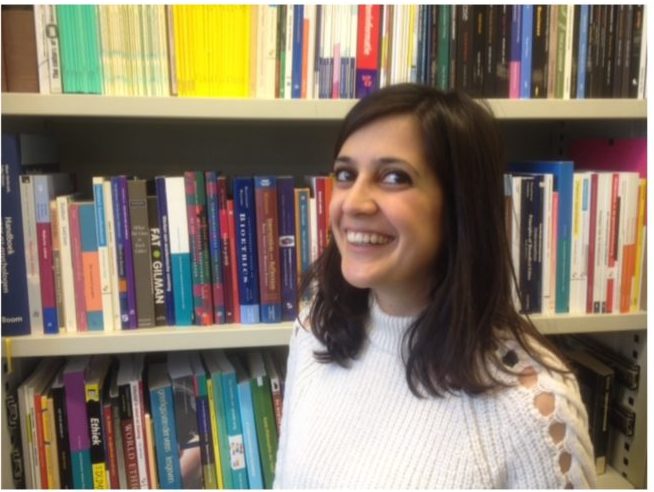News
Interview with Yara Al Salman in the Utrecht Ethics Institute Newsletter
What is your research about?
I’m one of the team members working on Rutger Claassen’s project ‘Private Property and Political Power in a Liberal Democratic Society.’ Together we analyse the relationship between different types of private property and the legitimate exercise of political power. My subproject is about ‘the new commons.’
Traditional commons abound in the agrarian sector. Think of farmers, for example, who share a meadow or an irrigation system. This is a type of private property. The asset does not belongto a state, but to a bounded group. Commons are on the rise; we see all sorts of new ways in which people share property. Certain citizen initiatives, such as running a neighbourhood library, are sometimes based on a common property structure. Practices in the sharing economy, both on the profit and non-profit side of the spectrum, constitute another type of ‘new commons.’ In addition, we have digital commons like Wikipedia, which are accessible to all and to which everyone can contribute.
The central question of my research project is: Do these practices challenge the democratic legitimacy of public institutions? And if so: how should we respond to this challenge?
What have you found so far?
It’s different for every activity. Of course, we are still in the early stages of the research, but one thing we see is that the for-profit sharing economy makes it difficult for local governments to achieve policy aims. Renting rooms and houses via Airbnb has consequences for the quality of residential areas. Municipalities find it hard to counter this issue. In addition, this practice causes house prices to rise, which will have consequences for the mix of higher and lower incomes in the city. Here you can see how the exercise of private property rights has a great influence on our public interests. We see a different problem with regard to the citizen initiatives I mentioned earlier. Local governments are increasingly relying on citizens to take over the public provision of goods. This means that public interests are increasingly being promoted by people in a private capacity, without the democratic accountability that formerly attached to public provision. I aim to research what these developments mean for local democracies. I hope that, at the end of my research, I will have developed a set of criteria that policymakers can use to deal with these challenges.
Did your personal experiences motivate you to do this research?
To some extent, yes. After finishing my studies, I worked as a researcher at ProDemos – House for Democracy and the Rule of Law. Here I learned a lot about citizen initiatives and the so-called ‘doe-democratie,’ in which citizens take over tasks from municipalities. After that, I worked at the municipality of Leidschendam-Voorburg, developing policy on refugee issues. There I noticed how much we actually ask from citizens and voluntary organisations in developing and executing policy aims. These organisations are given more and more public responsibility. In my research, I can examine this from a philosophical perspective. I think this will help us to evaluate these developments.
Why did you choose to go back to academia?
When I graduated I knew that I wanted to pursue a research career at some point, but first I wanted to get some work experience outside of academia. I learned many valuable things in my former jobs. I notice that, now that I know more about how political institutions actually work in practice, I approach political philosophy differently. So, these work experiences have been very helpful for my research.
I became interested in this particular project because of its specific approach to property. In the context of property, we often only think about rights, that is, about what we can do. In our project we try to think about the duties surrounding property; what should you do with what you own? Given the pressing concern of climate change and our duty to preserve our planet, I think this is a very important question. In addition, the research is concerned with very recent developments. New sharing activities pop up every day and it’s very interesting to be working on them now. I hope that my research can contribute to the current societal debate on the sharing economy and other practices.
How do you like working at the Ethics Institute?
I really like the fact that the Ethics Institute collaborates with so many social organisations. It shows you that you can do research that is philosophically very interesting and of great social relevance at the same time. And my colleagues are very nice and helpful, so it’s a great place to work.


